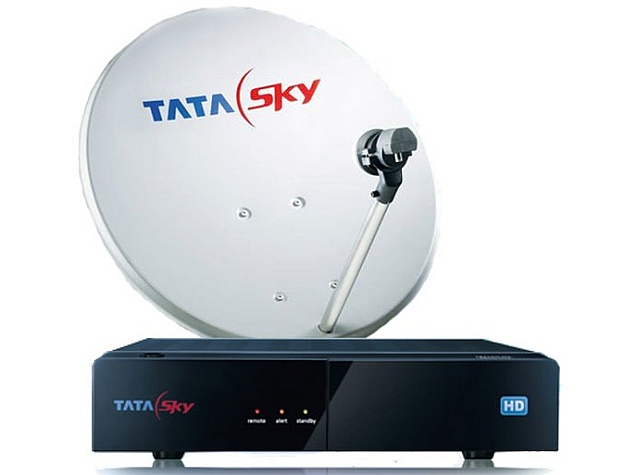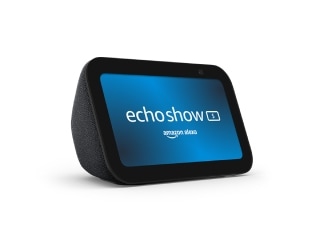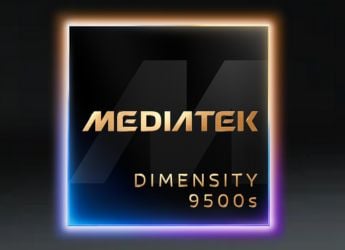Trai Recommends Extension of Licence Period for DTH Operators
By Press Trust of India | Updated: 23 July 2014 20:02 IST

Click Here to Add Gadgets360 As A Trusted Source

Advertisement
Broadcast regulator Trai on Wednesday recommended extension of licence period of direct-to-home (DTH) operators to 20 years, while proposing bringing down fees to 8 percent of the adjusted gross revenue.
In its recommendations on a new DTH licensing regime, the Telecom Regulatory Authority of India (Trai) said vertically integrated broadcasters must be subjected to a set of additional regulations, allowing them to control only one distribution platform operators (DPOs).
Vertically integrated broadcasters are entities which run TV channels as well as distribution platforms as MSO and DTH.
On the tenure of DTH licence, Trai suggested that it to be increased from 10 years to 20 years, renewable by 10 years at a time.
To bring parity with telecom operators in terms of licence fee with the DTH operators, Trai also recommended a reduction in existing licence fee from 10 percent of gross revenue (GR) to 8 percent of the adjusted gross revenue (AGR).
The sectoral regulator also recommended a one-time entry fee of Rs. 10 crore for the DTH industry.
Moreover, Trai has also suggested giving liberty to the existing DTH operators to "migrate to the new regime at any time during their currency of their existing licenses".
The DTH operators are paying 10 percent of their GR, while the telecom operators pay only 8 percent of their AGR.
Under AGR, revenues arising out from other activities like interest on savings, dividends, bundling of handsets and others are excluded for calculating the licence fee.
Trai has also suggested BIS (Bureau of Indian Standards) to come out with updated specifications for the set-top-boxes (STBs) in consultation with the regulator.
On the issue of cross holdings in the broadcasting and the distribution sectors, Trai said there was a need to bring "uniformity" in the sector.
"Comprehensive definition of 'control' to be uniformly adopted in all segments of broadcasting and distribution sectors," it recommended.
It has also suggested for additional set of regulations for vertically integrated broadcasters and DPO. Moreover, it also said that a vertically integrated broadcaster should be permitted to take control of only one DPO.
Trai also said that a "vertically integrated DPO to be restricted from controlling any other DPO of other category in the relevant market" and "not to be permitted to acquire more than 33 percent of the market share".
The sectoral regulator has also suggested that a vertically integrated DPO should declare its channel carrying capacity and not to reserve more than 15 percent of its capacity for channels of its vertically integrated broadcaster.
In its recommendations on a new DTH licensing regime, the Telecom Regulatory Authority of India (Trai) said vertically integrated broadcasters must be subjected to a set of additional regulations, allowing them to control only one distribution platform operators (DPOs).
Vertically integrated broadcasters are entities which run TV channels as well as distribution platforms as MSO and DTH.
On the tenure of DTH licence, Trai suggested that it to be increased from 10 years to 20 years, renewable by 10 years at a time.
To bring parity with telecom operators in terms of licence fee with the DTH operators, Trai also recommended a reduction in existing licence fee from 10 percent of gross revenue (GR) to 8 percent of the adjusted gross revenue (AGR).
The sectoral regulator also recommended a one-time entry fee of Rs. 10 crore for the DTH industry.
Moreover, Trai has also suggested giving liberty to the existing DTH operators to "migrate to the new regime at any time during their currency of their existing licenses".
The DTH operators are paying 10 percent of their GR, while the telecom operators pay only 8 percent of their AGR.
Under AGR, revenues arising out from other activities like interest on savings, dividends, bundling of handsets and others are excluded for calculating the licence fee.
Trai has also suggested BIS (Bureau of Indian Standards) to come out with updated specifications for the set-top-boxes (STBs) in consultation with the regulator.
On the issue of cross holdings in the broadcasting and the distribution sectors, Trai said there was a need to bring "uniformity" in the sector.
"Comprehensive definition of 'control' to be uniformly adopted in all segments of broadcasting and distribution sectors," it recommended.
It has also suggested for additional set of regulations for vertically integrated broadcasters and DPO. Moreover, it also said that a vertically integrated broadcaster should be permitted to take control of only one DPO.
Trai also said that a "vertically integrated DPO to be restricted from controlling any other DPO of other category in the relevant market" and "not to be permitted to acquire more than 33 percent of the market share".
The sectoral regulator has also suggested that a vertically integrated DPO should declare its channel carrying capacity and not to reserve more than 15 percent of its capacity for channels of its vertically integrated broadcaster.
Comments
Catch the latest from the Consumer Electronics Show on Gadgets 360, at our CES 2026 hub.
Related Stories
Popular on Gadgets
- Samsung Galaxy Unpacked 2025
- ChatGPT
- Redmi Note 14 Pro+
- iPhone 16
- Apple Vision Pro
- Oneplus 12
- OnePlus Nord CE 3 Lite 5G
- iPhone 13
- Xiaomi 14 Pro
- Oppo Find N3
- Tecno Spark Go (2023)
- Realme V30
- Best Phones Under 25000
- Samsung Galaxy S24 Series
- Cryptocurrency
- iQoo 12
- Samsung Galaxy S24 Ultra
- Giottus
- Samsung Galaxy Z Flip 5
- Apple 'Scary Fast'
- Housefull 5
- GoPro Hero 12 Black Review
- Invincible Season 2
- JioGlass
- HD Ready TV
- Laptop Under 50000
- Smartwatch Under 10000
- Latest Mobile Phones
- Compare Phones
Latest Gadgets
- Tecno Spark Go 3
- iQOO Z11 Turbo
- OPPO A6c
- Samsung Galaxy A07 5G
- Vivo Y500i
- OnePlus Turbo 6V
- OnePlus Turbo 6
- Itel Zeno 20 Max
- Lenovo Yoga Slim 7x (2025)
- Lenovo Yoga Slim 7a
- Realme Pad 3
- OPPO Pad Air 5
- Garmin Quatix 8 Pro
- NoiseFit Pro 6R
- Haier H5E Series
- Acerpure Nitro Z Series 100-inch QLED TV
- Asus ROG Ally
- Nintendo Switch Lite
- Haier 1.6 Ton 5 Star Inverter Split AC (HSU19G-MZAID5BN-INV)
- Haier 1.6 Ton 5 Star Inverter Split AC (HSU19G-MZAIM5BN-INV)
© Copyright Red Pixels Ventures Limited 2026. All rights reserved.

















